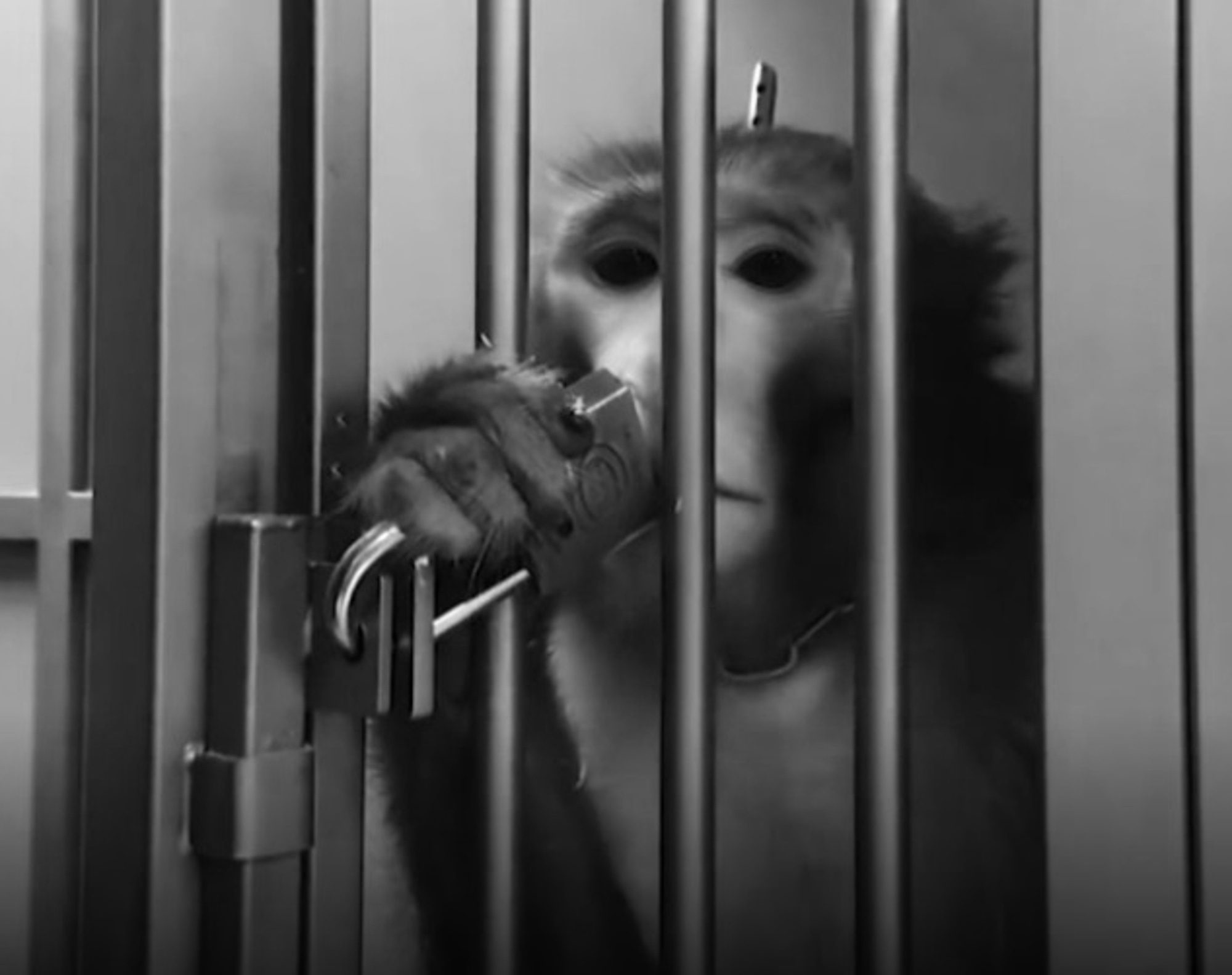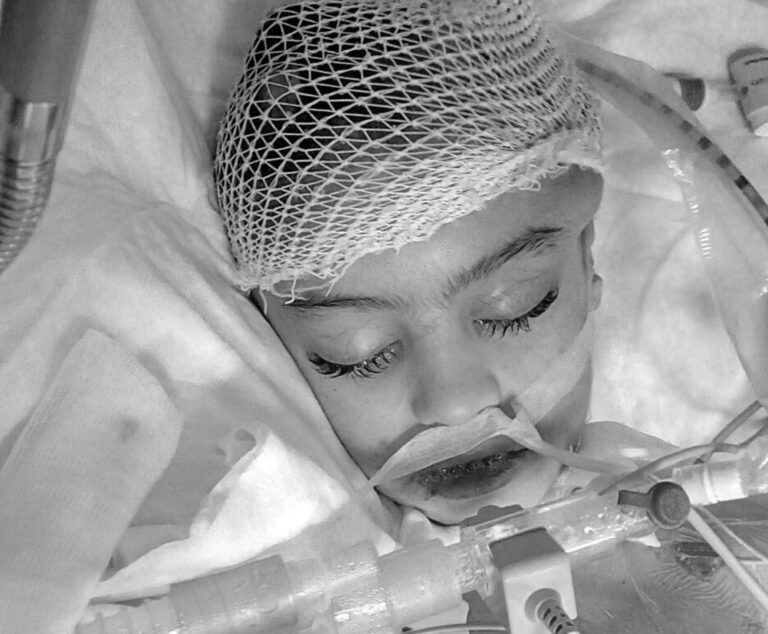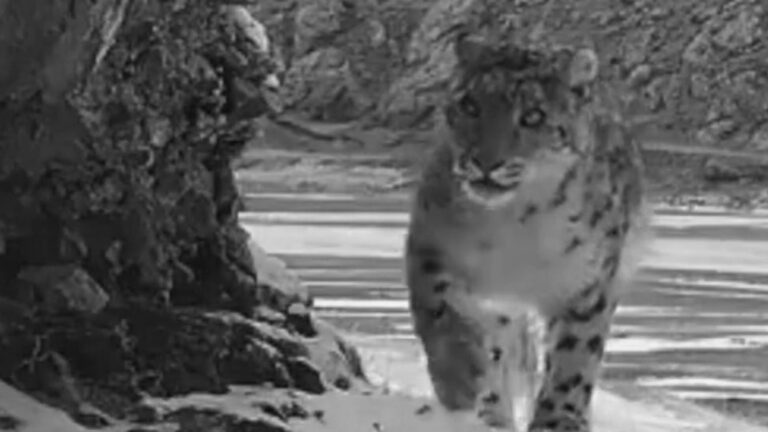This footage shows apes with electrodes on their head who are so thirsty they reportedly drink their own urine before they are blinded as part of cruel lab tests.
According to the lab’s website, its partners in various projects include Oxford University, although it is unclear if they have benefited from this test.
The undercover footage was shot by Italian animal rights organisation Essere Animali in cooperation with Dutch-Belgian organisation Animal Rights in a university laboratory in Parma, a city in the northern Italian region of Emilia-Romagna and the University of Oxford is listed as a beneficiary of the research on its website.
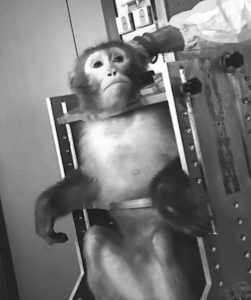
According to both animal rights organisations, the macaques are being used in a long-running brain research programme.
Animal Rights told Central European News (CEN): “The monkeys have open wounds from the electrodes on their head and are trained by abstaining them from water.
“This has serious consequences for their wellbeing. The footage shows how a thirsty monkey drinks his own urine and how the animals lick on the walls and bars of the cages.”
In the video, one of the monkeys can be seen licking the padlock of its cage in an apparent attempt to obtain some moisture from it while another macaque can be seen drinking a liquid, reportedly urine, from the floor of its cage.
The organisation added to CEN: “The research in question is research called ‘LIGHTUP – Turning the cortically blind brain to see’ which involves the use of macaques to be subjected to a long training period (with immobilisation in several parts of the body for hours, almost every day, for weeks or even months) and to surgical removal of areas of the visual cortex in order to make the macaques clinically blind” (sic).
The research project’s website lists “The Chancellor, Masters and Scholars of the University of Oxford” as one of the three “beneficiaries” of the study, along with Tilburg University in the Netherlands and the University of Turin in Italy.
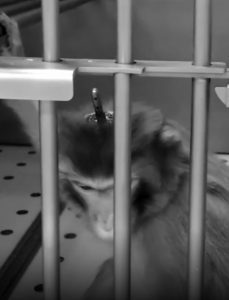
The benefits the University of Oxford receive from the study are unclear but the incident comes as pressure from students for the institution to stop animal testing is growing.
A November 2018 study from Understanding Animal Research found that Oxford University conducted the most animal testing out of any university in the United Kingdom with 236,429 procedures in 2017.
Both animal organisations now want to stop the University of Parma from receiving more macaques for the tests, which are being delivered from a company called ‘Hartelust’ in the city of Tilburg in the south of the Netherlands.
Animal Rights spokesman Robert Molenaar said: “Besides the grisly experiments, the long-lasting transport also causes stress and fear. You do not interact like that with animals so closely related to us who can feel and suffer as much as us.”
Geoffrey Deckers of allied NGO ‘Een DIER een VRIEND’ (‘An ANIMAL a FRIEND’) says that the involvement of a Dutch company is remarkable as the Dutch government has vowed to limit animal testing.
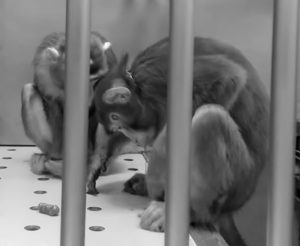
According to the animal rights organisations, the Tilburg-based company imports the monkeys from China. They say in total 10,000 such apes which are bred in “overcrowded cages” are used each year in animal experiments around Europe.
Deckers told CEN: “In the meanwhile the Netherlands has been playing a dubious role in the international trade of monkeys for vivisection for years.”
The Royal Dutch Academy of Sciences (KNAW) has previously warned that wild apes being caught in neighbouring countries by these Chinese breeding farms to keep the population pure cannot be ruled out.
A petition to stop the monkey trade and the experiments at the University of Parma has now reached more than 240,000 signatures.
Professor Giacomo Rizzolatti of the University of Parma has previously defended the animal testing and co-signed an open letter published in the Guardian in which he and his colleagues from several universities across Britain and the wider world wrote that “primate research is crucial if we are to find cures for diseases like Parkinson’s”.
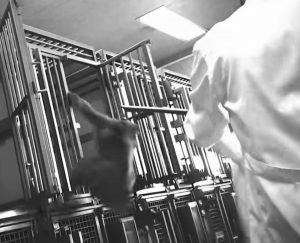
The letter read: “To effectively combat the scourge of neurodegenerative and other crippling diseases, we require the careful and considered use of nonhuman primates.”
Yet according to Robert Molenaar of Animal Rights “apes have been used for at least 30 years in brain experiments without this leading to the development of effective medicines for Parkinson’s”.
Molenaar told CEN: “What we should work towards is a transition towards test-animal free innovation so we can end the animal suffering and make steps to effectively combat brain diseases.”
To find out more about the author, editor or agency that supplied this story – please click below.
Story By: Koen Berghuis, Sub-Editor: Joseph Golder, Agency: Central European News
The Ananova page is created by and dedicated to professional, independent freelance journalists. It is a place for us to showcase our work. When our news is sold to our media partners, we will include the link here.

